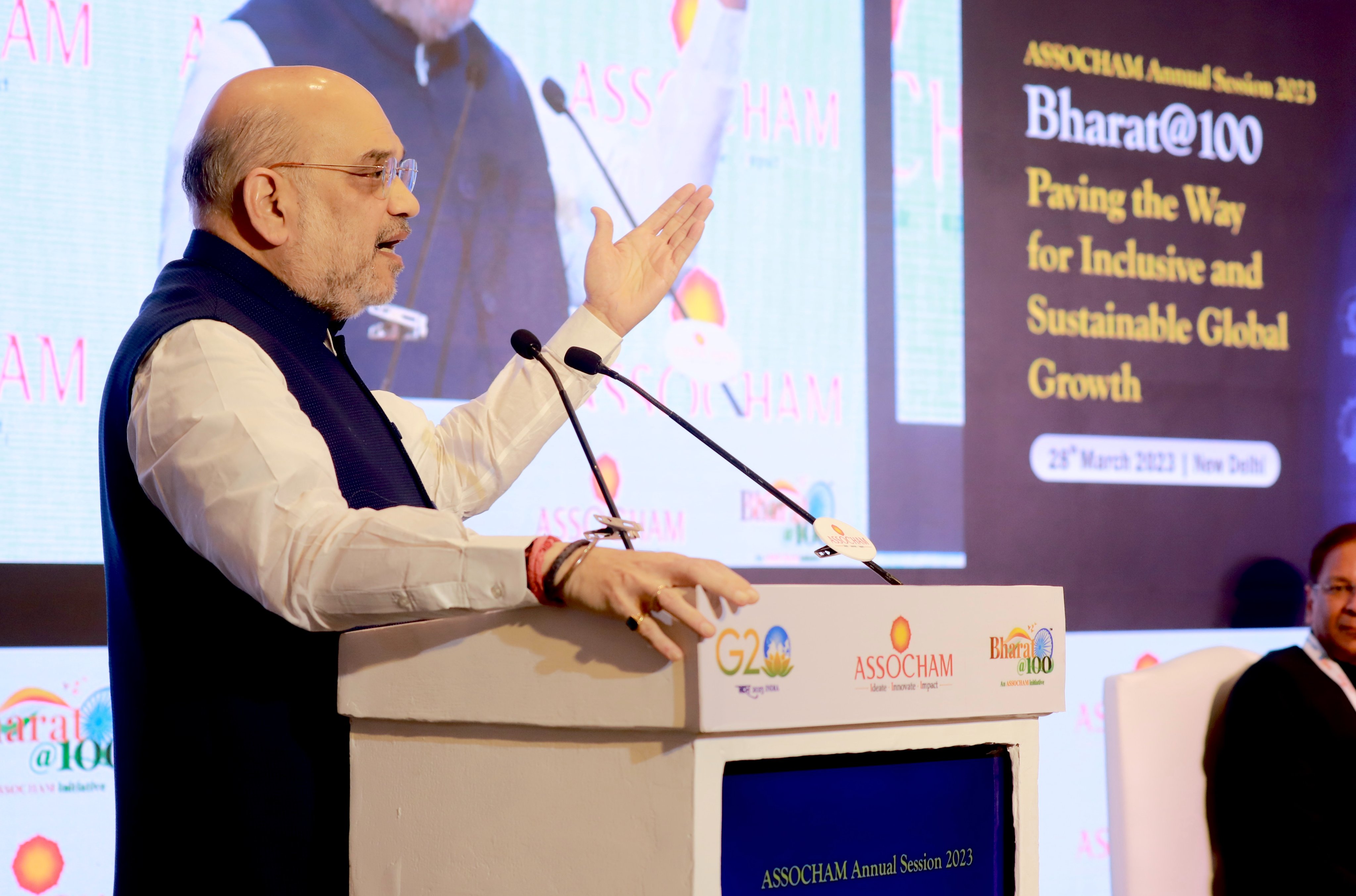
Central Govt is working to reduce logistics cost to GDP to 7.5% in 5 years: Amit Shah
NEW DELHI : The government is working to bring down logistics cost to GDP to 7.5 per cent from the current 13 per cent, Union Home Minister Shri Amit Shah said Tuesday. Addressing the annual session of Assocham, Shah said, without the development of the country’s infrastructure and reduction of logistics costs, development was not possible.
The logistics cost in India is 13 per cent to the GDP as compared eight per cent in the rest of the world, making it difficult for Indian exports to compete globally, he said.
“We will have to remove the eight per cent and 13 per cent gap. We have formulated a framework for the next five years. I can assure you that we will reach 7.5 per cent logistics cost in the next five years,” he said.
Shah said the Narendra Modi government has made a plan of Rs 100 lakh crore investment in infrastructure with some mega projects such as the doubling of railway lines, their widening, dedicated freight corridors from Mumbai to Delhi and Amritsar to Kolkata besides 11 other industrial corridors.
Citing other achievements in the infrastructure sector through major schemes, Shah said the government has set a target to bring down logistics costs below the national average by 2028 to make exports globally competitive.
The minister expressed confidence that the Modi government has laid a strong foundation for making India a developed nation by 2047 and a USD 5 trillion economy by 2025.
Taking a dig at former Union finance minister P Chidambaram, Shah said when Modi was giving details of the Digital India scheme, the Congress leader questioned how will small amounts be paid to a street vendor, whether villages will have electricity and broadband to enable those transactions.
He said, now, UPI is being used by almost every business.
“UPI contributed 52 per cent of the 8,840 crore digital transactions in 2022 which comes to Rs 1.26 lakh crore,” he said.
Shah also credited Modi for giving a humane face to drab GDP numbers through social schemes which is a first in the world.

